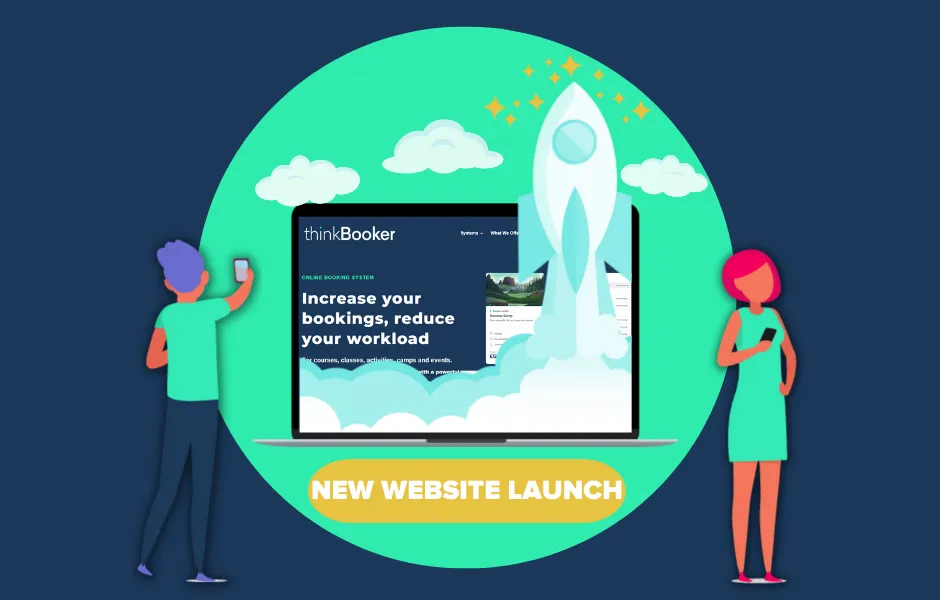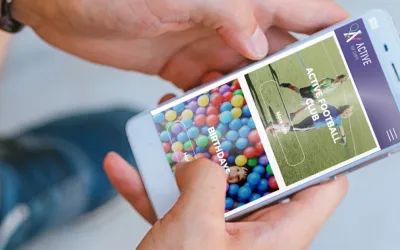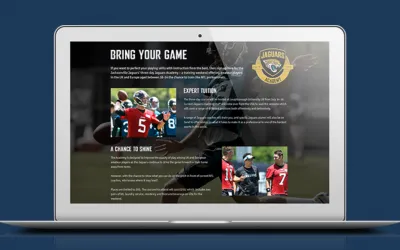When you’re considering online booking systems for your business, there’s a lot of choice; From free plug-in type systems to enterprise level bespoke platforms. Deciding what system to go for can be tricky as you try to determine just what it is you are hoping to achieve with a new booking system.
At thinkBooker, we don’t just believe, we absolutely know that your booking system can be the cornerstone of your business. A platform to help your brand thrive, your revenue streams flow and your productivity soar. A system that will not only deliver a return on investment, but actually help transform your business.
For this to happen, however, you need to look at the features contained within the booking software that you choose. Here are the seven key features that your booking system should contain.
Slick and Speedy Booking Journey
Ferris Bueller was right, the world moves pretty fast and the modern customer, used to making online purchases for all manner of things, has an expectation of being able to get what they want with the minimum of fuss.
With slow, over-complicated booking journeys accounting for up to 27% of abandonments you could be missing out on a hefty chunk of business if your booking system doesn’t offer a swift and uncomplicated pathway to the confirmation page

Mobile Friendly Booking System
It’s a mobile-dominated world in which we live, with more than 85% of the UK’s adult population now using smartphones on a daily basis. That’s probably why you’ve invested in a website that works on mobile devices.
Why then, would you adopt an online booking system that takes people away from the elegant and responsive site that you’ve invested in, to a clunky process that’s difficult to navigate on mobile or tablet?
You need to ensure that your booking system is not just mobile-friendly (in other words, sort of works on a mobile device, with a bit of prodding), but fully mobile responsive and easy to navigate with the push of a thumb.
Why create barriers or reasons for customers to give up and move to a competitor?
Respect for your Brand
This is a big, and often over-looked aspect of the booking journey.
Your brand is the heartbeat of your business, the way in which your customers identify all that is good with what you do.
And it needs to be represented consistently, always, and at every touchpoint; with a report by Lucidpress suggesting that brand consistency can increase revenue in a business by up to 23%.
There are too many booking systems on the market who don’t pay anywhere near enough attention to your brand.
It’s not enough to just stick a poorly rendered copy of your logo on the top left of the page. Your brand needs to be reflected throughout the journey to exactly match the way it is represented on every other platform.
And that includes the confirmation emails that you send out.

Understanding the Value of Data
Data can be the essential ingredient for long-term, sustainable growth and customer loyalty.
Your booking system is not just an added layer of convenience for your customers at the point of sale (although that’s important too), but a vital cog in your on-going engagement with your clients, your marketing activity and the levels of service that you can deliver to them in the future.
Personalisation of service and exceptional customer experience are vital to retaining loyal clients and referrals.
Your booking system should be front and centre as a tool for enabling this; utilising an in-built CRM function, allowing you to capture essential information that can help personalise the service you deliver, and gain invaluable insight to feed into the campaigns you run in the future.
Connecting your Platforms
Introducing an online booking system provides another convenient means for customers to make bookings with you – this we know.
As we’ve discussed before, if a business introduces an online system (as long as it meets the expected ease of us criteria), people will use it.
But that’s not to say that there won’t be those who want to book by phone, or the times when a person wants to make a booking in person.
The world is simply not divided up into online and offline users. As a business you need to cater for your customers across all the platforms that they use.
Your booking system should be equipped to ensure that customers can make bookings online and offline, with all data, booking information and transaction details captured within a single system.
What good is having an online booking system if you are still scrabbling around with a diary when someone picks up the phone?
Real-Time Reports
As a manager or business owner, having instant and real-time access to the key metrics in your business is fundamental to its efficient running.
Your booking system needs to provide this access through a user-friendly executive dashboard, allowing access to up to the minute data and allowing the finger to remain firmly on the pulse. Ensuring that this is accessible via mobile, given the remote working nature of the modern business culture, should also be a key consideration when looking at the management tools of any booking system.
In addition, real-time data offers an operational benefit on a day-to-day basis as well, when it comes to the bookings themselves.
Take, for instance, a training course or sports camp booking scenario. Having a real-time view of who is booked onto the course (right up until the moment it is due to begin) is vital for knowing who is actually attending, how many spaces are left, and who has cancelled.

Automation
Booking processes can be especially laborious and draining on time and resources: manning phone enquiries, responding to emails (not to mention the customer loss in the time it takes to respond), compiling reports, creating spreadsheets for class registers and so on.
Your booking system should be working to make your organisation work more efficiently from an operational perspective.
Your system should be:
- Automating the booking journey
- Reducing the time spent on phone bookings
- Automating secure payments
- Sending automatic confirmation and reminder emails
- Report generation
- Instant booking / class registers
We understand that there are essential administrative requirements in a booking process; but do they need to be carried out in person?
Time is money. Every minute taken on this kind of admin is a minute not engaged in driving the business forward.
We work with clients to help reduce manual admin by up to 70%, increasing productivity and improving the profitability of every booking made.
At thinkBooker, we specialise in online booking systems for training courses, classes, activities and events – optimised for efficiency, growth and ongoing client satisfaction.
Browse the site to learn more about course booking systems, sports booking systems, event booking systems and more, or get in touch directly to find out how we can help you.
Read more insight into recommended features for your booking system here:
The thinkBooker Guide to Choosing Your Next Booking System
thinkBooker Achieves Double Digit Growth
Why are Booking Systems So
32 Ways to Use an Online Booking System



